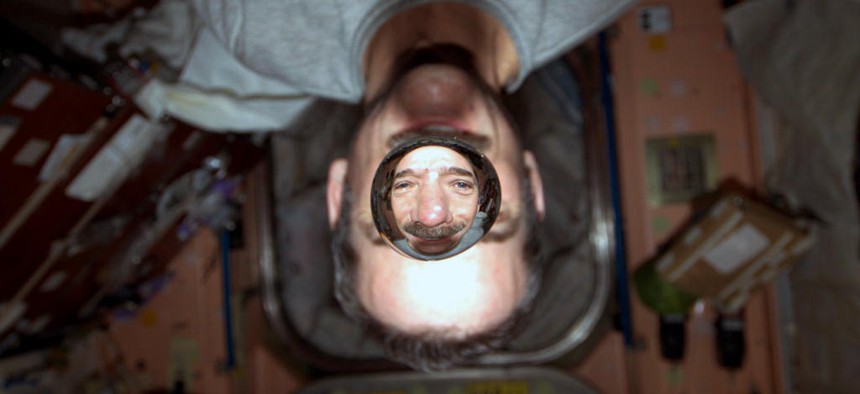Space Is Now a Reality TV Show
Chris Hadfield's return from the International Space Station marks a new era for the final frontier.
"Why are people so fascinated with @Cmdr_Hadfield?" the tweeter asked. "Can someone enlighten me?"
The answers were swift and sharp and unsurprising. "Dude, he's a frigging astronaut!" one replied. "Um, he's an astronaut?" another offered. "What else do you need?" Someone else explained things with a little more detail: "He's inspiring a generation of kids (my kids!) to grow up to be scientists & astronauts and not the Kardashians."
Chris Hadfield -- nom de tweet: @cmdr_hadfield -- has been doing more than inspiring people, though. He has also been entertaining them. And delighting them. He has chatted with Captain Kirk. He has covered Bowie. He has written his own music, and performed it. He has publicly celebrated Valentine's Day, and Easter, and St. Patrick's Day, and April Fool's. He has done a mind-boggling number of live chats and Q&As and video explainers. He has led Canada in a national sing-along. And all of these things have shared a remarkable predicate: They have been done, you know, from space. Hadfield has kept a running dialogue with Earth, documenting not just the numinous -- those amazing views! -- but also the mundane: the food. The fun. The exercise. The sleep. The tears. The bathroom situation.
Over the course of 144 days spent on the International Space Station (encompassing 2,336 orbits of the Earth and covering nearly 62 million miles), Hadfield didn't merely do his day job -- conducting more than 130 scientific experimentsabout the effects of microgravity on masses of various types. He also helped to change our concept of what it means to be an astronaut in the first place. He is a space explorer in the Gagarin/Glenn/Armstrong model, but he is something else, too: just a guy. A guy who happens to be in space. Hadfield, availing himself of new technologies that are just beginning to be widely adopted, made space travel seem accessible. He made it seem normal (or, in astronaut-speak, "nominal"). He took it out of the realm of the awe-inspiring and placed it squarely in the realm of the awesome.
NEXT STORY: How to Walk Away



